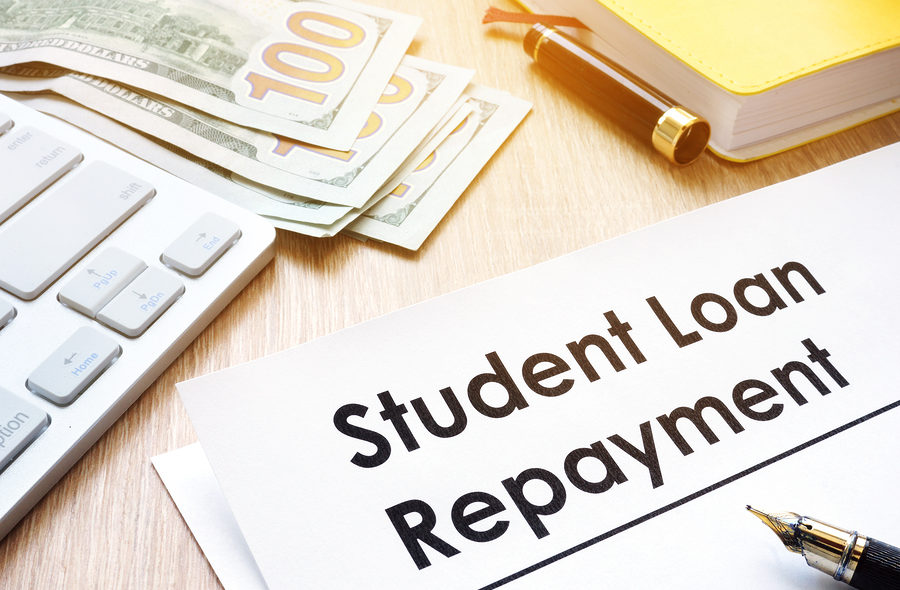Student loan debt has become a hot topic in Congress and on the 2020 presidential campaign. The current COVID-19 crisis further highlighted the issue, which has student loan experts anticipating several potential changes when it comes to student loan debt.
Temporary Pause for Payments
One of the more immediate changes comes with the federal stimulus package, the Coronavirus Aid, Relief, & Economic Security Act (CARES Act). This $2.2 trillion stimulus bill offered many different benefits, one of them being a pause for all payments due on federal student loans. This temporary stop is set to last through September 30, 2020. In addition, interest will not accrue on outstanding federal student loans during this period. However, this coverage only includes loans serviced directly by the federal government and not by private providers. If borrowers have loans that were originally federal but later consolidated through a private entity, no immediate pause will occur on these debts. This fact has not stopped many states from working out arrangements with student loan servicers to include private student loans in the temporary relief. Given the fact that the COVID-19 pandemic seems to be holding on, this forbearance period could potentially extend beyond September 30, 2020. The Heroes Act has already included a provision to extend the forbearance by one year, but it is not decided yet whether the extension will occur.
Student Loan Forgiveness
Another hot topic when it comes to student loan debt is student loan forgiveness. Currently, only a few options exist to have student loan debt forgiven, including working in the public service sector for a period of time. However, proposals have been made in Congress to forgive outstanding student loan debt, including a Democratic proposal in the House forgiving $30,000 of a borrower’s student loan debt. The Heroes Act, currently being debated in Congress, includes a proposal to cancel $10,000 for federal student loans and $10,000 for private student loans. This proposal will likely change, meaning the amount will be reduced, if the bill is to pass the Senate at all. At this point, it seems as if student loan forgiveness is only a mere possibility.
Student Loan Debt in Bankruptcy
Another potential change coming for student loan debt involves how it is handled in bankruptcy. For the most part, student loans are extremely difficult to discharge in a bankruptcy case. A discharge only occurs in limited circumstances where the borrower is able to prove an undue hardship. Bankruptcy courts vary on how this undue hardship is determined, although pressure has been coming in recent years for courts to come with a more uniform test for determining discharge of student loan debt. Additionally, there is a current bipartisan effort in Congress to create legislation that will allow student loan borrowers to discharge their debts in bankruptcy. Arguably this issue is one that will not be going away and will likely bring about change in the near future.
Lower Interest Rates
Traditionally, student loans tend to have lower interest rates than most other unsecured debts, including personal loans or credit cards. However, good news is coming with respect to current interest rates on student loans. These interest rates on federal student loans are expected to drop even lower in the Fall of 2020. These lower interest rates can make paying off the loans easier than other types of debts with significantly higher interest rates.
College for Free?
The idea of free college was a common topic mentioned by some of the more progressive Democratic Presidential candidates, including Senators Bernie Sanders (I-VT) and Elizabeth Warren (D-MA). While both of these candidates have since dropped out of the race, the presumptive Democratic nominate, former Vice President Joe Biden has made statements suggesting that all undergraduate tuition-related federal student loan debt for two- and four-year public universities should be forgiven, which would essentially make most college free for students attending. However, determining how the government could fund a free college education is a highly contested issue, and for the foreseeable future, the idea of free college may be more like a pipe dream.
Please click here to read more.
For borrowers who are struggling with student loan debt, relief options are available. Many student loan borrowers are unaware that they have rights and repayment options available to them, such as postponement of loan payments, reduction of payments or even a complete discharge of the debt. There are ways to file for bankruptcy with student loan debt. It is important you contact an experienced Miami bankruptcy attorney who can advise you of all your options. As an experienced CPA as well as a proven bankruptcy lawyer, Timothy Kingcade knows how to help clients take full advantage of the bankruptcy laws to protect their assets and get successful results. Since 1996 Kingcade Garcia McMaken has been helping people from all walks of life build a better tomorrow. Our attorneys help thousands of people every year take advantage of their rights under bankruptcy protection to restart, rebuild and recover. The day you hire our firm, we will contact your creditors to stop the harassment. You can also find useful consumer information on the Kingcade Garcia McMaken website at www.miamibankruptcy.com.



